Isolated Wetlands
|
Isolated wetlands are described as non-tidal, inland freshwater wetlands, with no permanent surface-water connection to waters of the United States (WOTUS).
Most of the wetlands that are found throughout Texas and the greater Houston area meet the definition of "isolated wetlands." There are different types of isolated wetlands, they commonly occur in pastures, on open land, and on land that is overgrown with natural vegetation, scrubs and forest. Isolated wetlands are not regulated under the Clean Water Act, but precise regulatory boundaries are subject to interpretation and should be accurately determined and documented by landowners to protect their property rights against potential regulatory over-reach. |
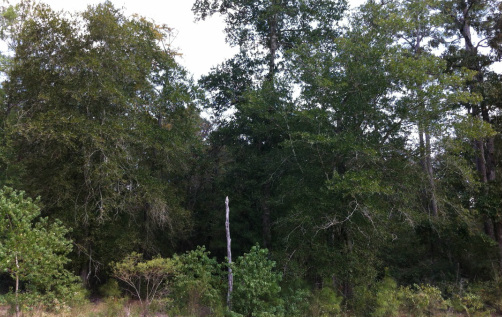
Forest - Isolated Wetlands
Most of the plant species that occur in the greater Houston area are now classified as "wetlands vegetation." The technical criteria that defines "wetlands" is very broad and as a result much of the undeveloped land in the greater Houston area meets technical definition of wetlands.
Most of the plant species that occur in the greater Houston area are now classified as "wetlands vegetation." The technical criteria that defines "wetlands" is very broad and as a result much of the undeveloped land in the greater Houston area meets technical definition of wetlands.
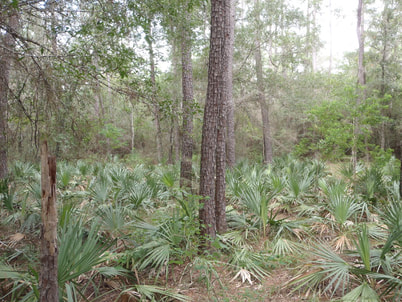
Palmetto and Forest - Isolated wetlands
Common on poorly drained land in low lying areas
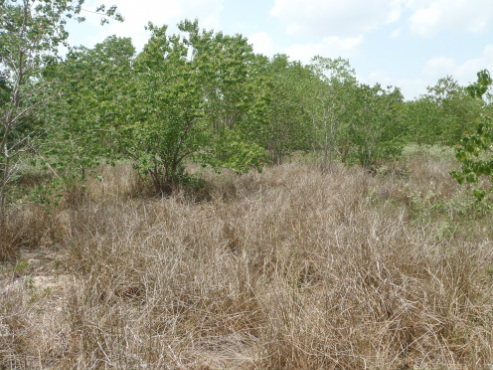
Tallow Trees and Shrubs - Isolated Wetlands
Very common on undeveloped land in the greater Houston area. Normally dry during hot summer months. Water marks on lower tree trunks indicate standing water conditions which normally occurs during the winter through early spring.
Thick vegetation clogs drainage ditches and causes land to become poorly-drained and overgrown with wetlands plants. Routine mowing maintains good drainage and reduces potential regulatory encumbrances.
Very common on undeveloped land in the greater Houston area. Normally dry during hot summer months. Water marks on lower tree trunks indicate standing water conditions which normally occurs during the winter through early spring.
Thick vegetation clogs drainage ditches and causes land to become poorly-drained and overgrown with wetlands plants. Routine mowing maintains good drainage and reduces potential regulatory encumbrances.
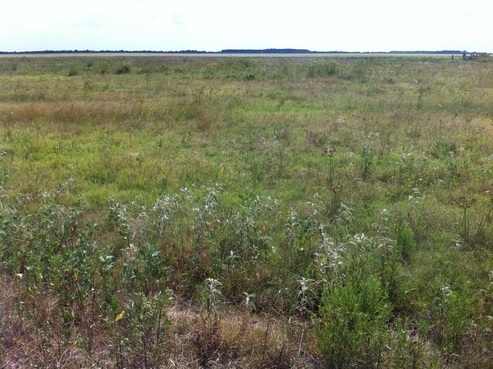
Pasture Grasses and Shrubs Isolated Wetlands
Most of the plants shown in this photograph are now classified as wetlands vegetation. This land is flat and poorly drained, and may be saturated for long periods during the annual wet season (winter through spring).
Most of the plants shown in this photograph are now classified as wetlands vegetation. This land is flat and poorly drained, and may be saturated for long periods during the annual wet season (winter through spring).
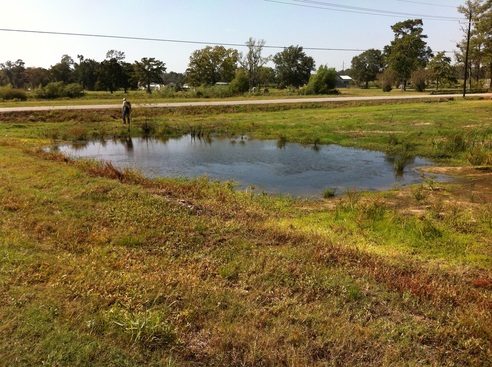
Shallow fresh-water isolated wetlands surrounded by uplands and roads. This wetlands does not have a surface-water hydrology connection to downstream navigable waters and is not-subject to federal regulation.
